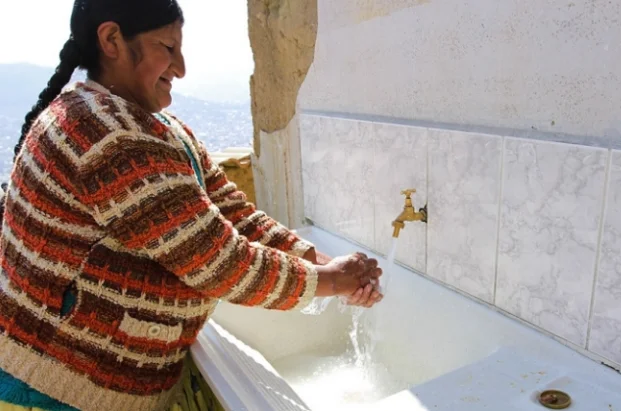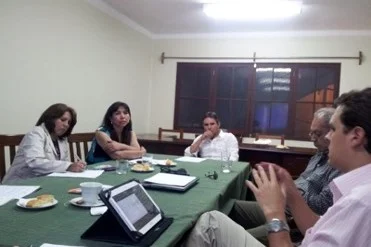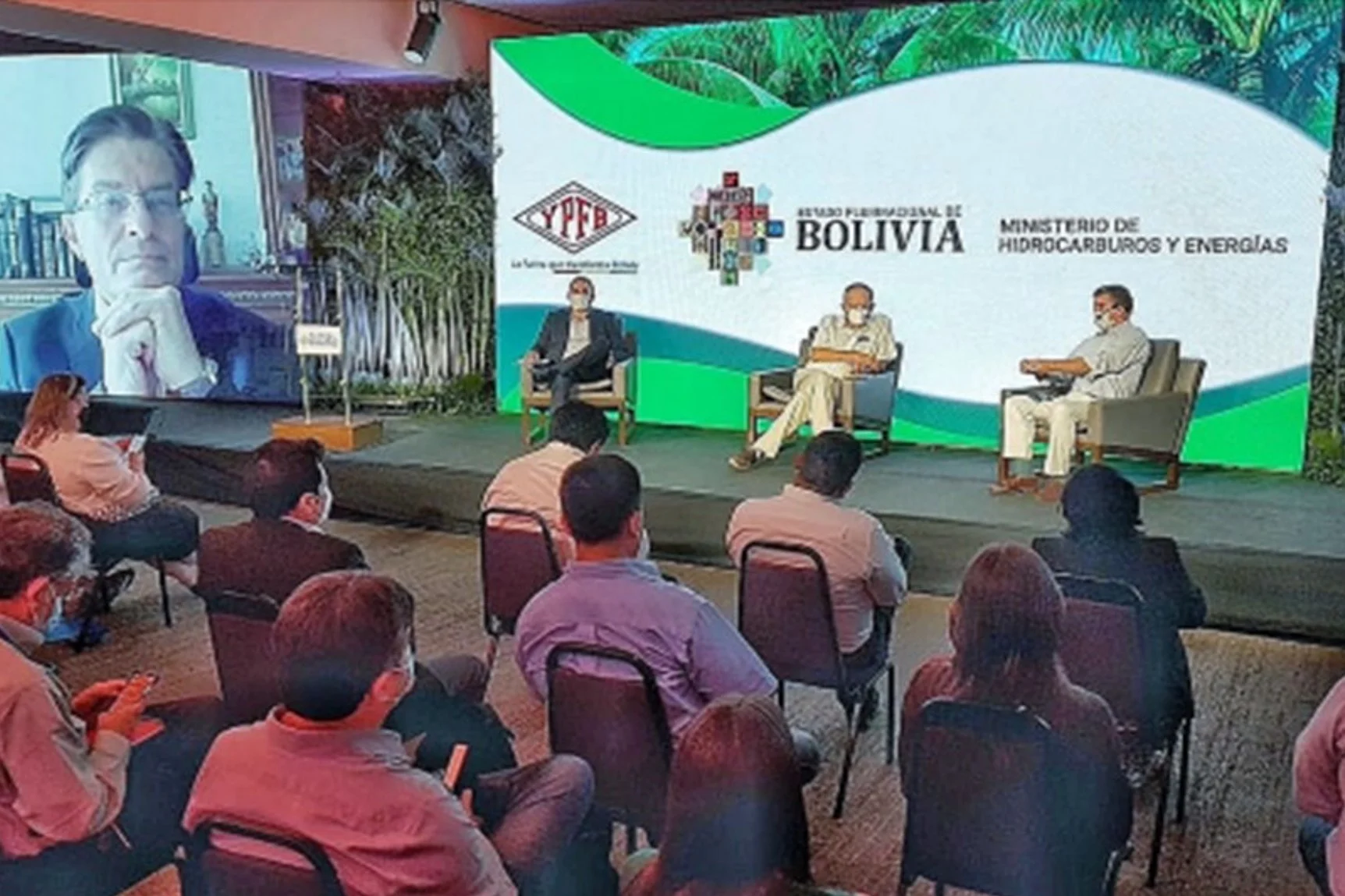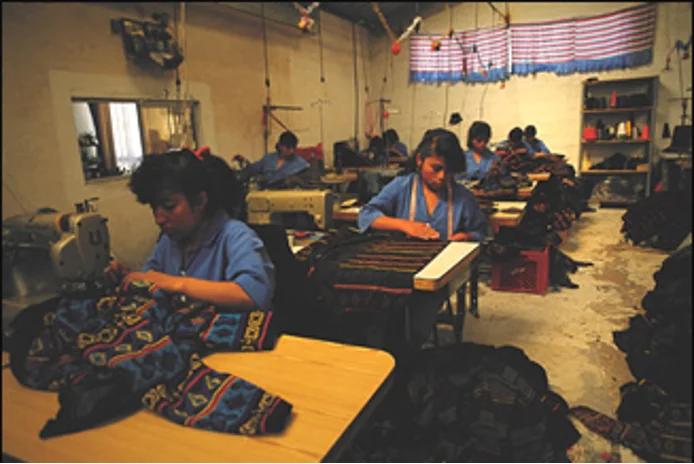Building Sustainable Cities in Bolivia

The Bolivia Urban Infrastructure Project addresses the nation’s increasing urbanization and the needs of low-income residents in three major cities. This project enhanced mobility in the city of El Alto by constructing routes and sidewalks, benefiting 197,000 people living in high traffic areas. In addition, more than 28,000 people in La Paz benefited from improved access to basic services and infrastructure, and in Santa Cruz more than 34,000 people were connected to the sewerage network.
The support provided by the World Bank under the project to the cities of La Paz, El Alto, and Santa Cruz built on decades of experience and lessons learned from other projects to upgrade low-income settlements, urban transport, and sanitation in Indonesia, Kenya, Argentina, and elsewhere. Using this knowledge, the Bolivia Urban Infrastructure Project focused on four key aspects:
- adequate targeting of the poor
- demand for services by the target communities
- institutional capacity to cover newly constructed infrastructure operation and maintenance costs to ensure sustainability.
scalability:
- The project promoted women’s participation in different community activities, and their involvement in organized groups such as the Social Management Committee, the Emergency Committee, and the Enterprises Group helped them assume leadership positions. Approximately 40,000 women in the targeted neighborhoods directly benefited from the project. In addition, to foster creation of microenterprises by women, technical assistance was offered in specific areas, including sewing, baking, and gastronomy. In El Alto, an estimated 102,478 women benefited directly from project interventions to improve mobility.
Results:
- The project’s direct and indirect benefits were widely felt in the target communities.
- Project financing has supported urban upgrading activities in 45 neighborhoods between .
- Since its launch, the Barrios de Verdad (PBCV) urban upgrading program in La Paz has benefited more than 12,500 families and more than 10,300 children living in low incomes areas of the city.
- Average travel time to the nearest bus stop in beneficiary neighborhoods decreased from 19 to 7 minutes, and estimates carried out for the final project evaluation suggest that property values have doubled since the program’s interventions.
- PBCV program participants have joined in knowledge exchanges with Guatemala and Quito, Ecuador, to share their successes in neighborhood improvement, urban management, and community involvement.
- In El Alto, 13.44 kilometers of roads were constructed under the project, significantly reducing residents’ travel times. In addition, more than 18 kilometers of sidewalks were built.
- In Santa Cruz, more than 34,000 people were connected to the sewerage network.
Bank Group Contribution:
- The World Bank, through the International Development Association (IDA), provided $54 million to the Bolivia Urban Infrastructure Project. The first phase of the program, approved in 2006, allocated US$30 million: US$10 million per municipality for each of La Paz, El Alto, and Santa Cruz. In 2012, additional financing of US$12 million supported expansion of urban upgrading efforts in La Paz, and additional financing of US$12 million strengthened urban transport in El Alto.
Partners:
- The Inter-American Development Bank provided financing for the Barrios de Verdad program in La Paz, supporting the municipality in efforts to widen the program to meet the needs of residents in additional low-income neighborhoods.
Beneficiaries:
- Gladys Humeres is a woman living in one of the upgraded neighborhoods. She has found employment working in the childcare groups in the community center. “I am very happy to have found a place where my child can learn and grow and be safe while I am also working.”
Moving Forward:
- Each of the cities involved in the project continues to maintain the urban upgrading, mobility, and sanitation improvements achieved. In addition, La Paz is scaling up the Barrios de Verdad program and has recently completed upgrading programs in a total of 100 neighborhoods.
 Albania
Albania Algeria
Algeria Andorra
Andorra Argentina
Argentina Armenia
Armenia Australia
Australia Austria
Austria Azerbaijan
Azerbaijan Bahrain
Bahrain Belgium
Belgium Bolivia
Bolivia Brazil
Brazil Bulgaria
Bulgaria Cambodia
Cambodia Cameroon
Cameroon Canada
Canada Chad
Chad Chile
Chile China
China Colombia
Colombia Costa Rica
Costa Rica Croatia
Croatia Cyprus
Cyprus Czechia
Czechia Denmark
Denmark Ecuador
Ecuador Egypt
Egypt Finland
Finland France
France Georgia
Georgia Germany
Germany Ghana
Ghana Greece
Greece Hungary
Hungary Iceland
Iceland India
India Indonesia
Indonesia Ireland
Ireland Italy
Italy Jamaica
Jamaica Japan
Japan Jordan
Jordan Kazakhstan
Kazakhstan Kenya
Kenya Kuwait
Kuwait Latvia
Latvia Lebanon
Lebanon Libya
Libya Lithuania
Lithuania Luxembourg
Luxembourg Malaysia
Malaysia Maldives
Maldives Mali
Mali Malta
Malta Mexico
Mexico Moldova
Moldova Monaco
Monaco Morocco
Morocco Netherlands
Netherlands New Zealand
New Zealand Nigeria
Nigeria North Macedonia
North Macedonia Norway
Norway Oman
Oman




